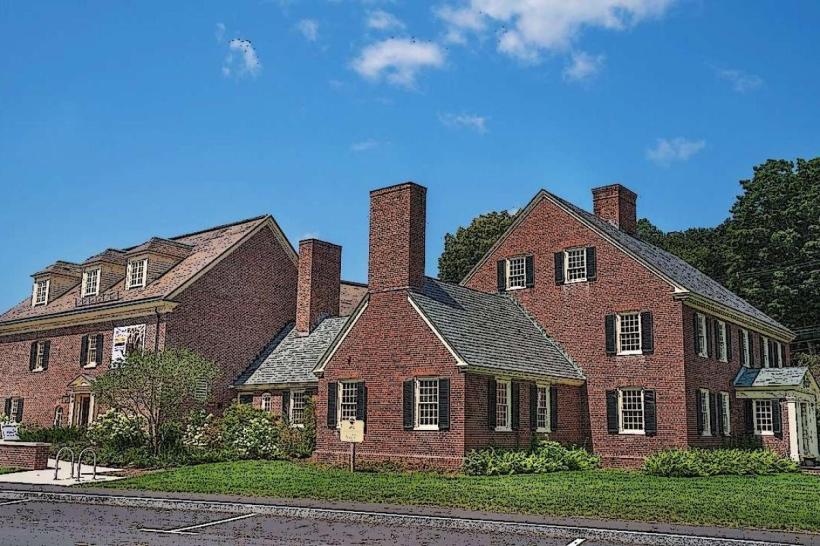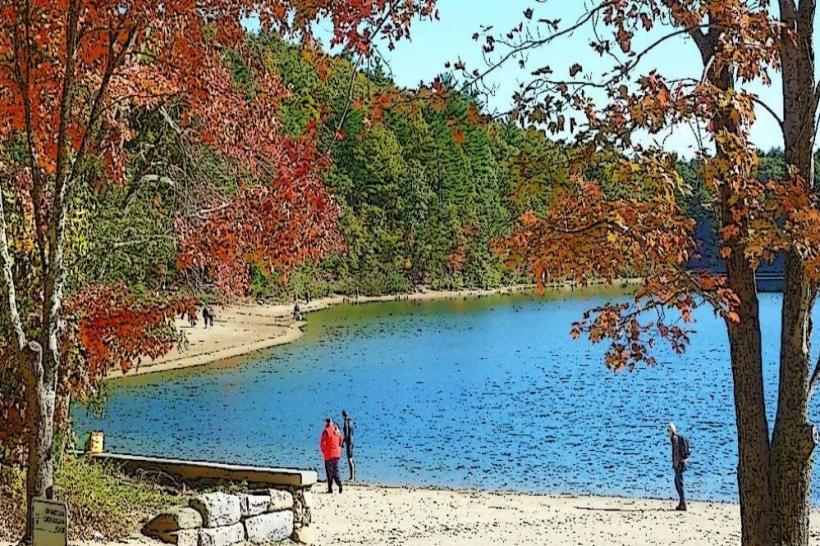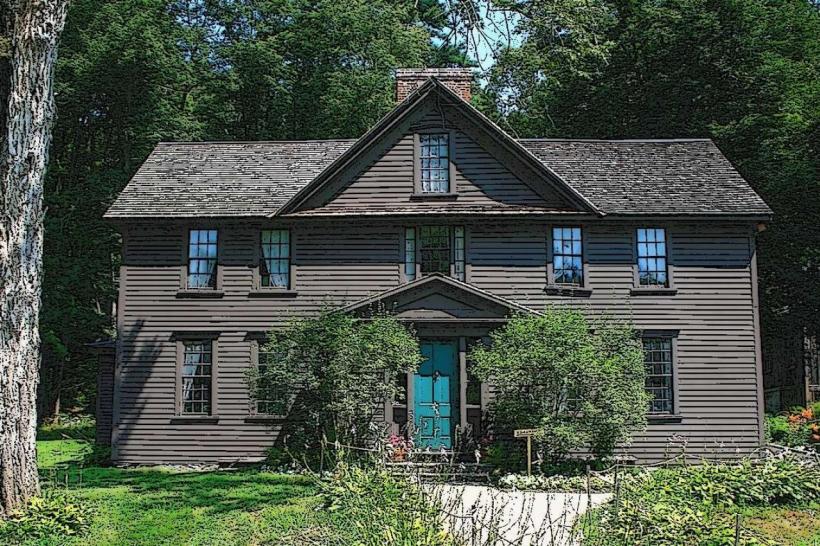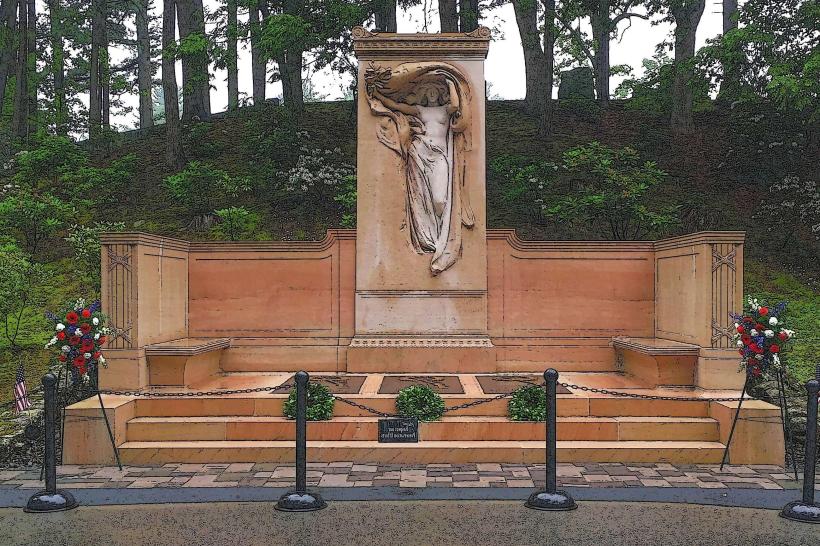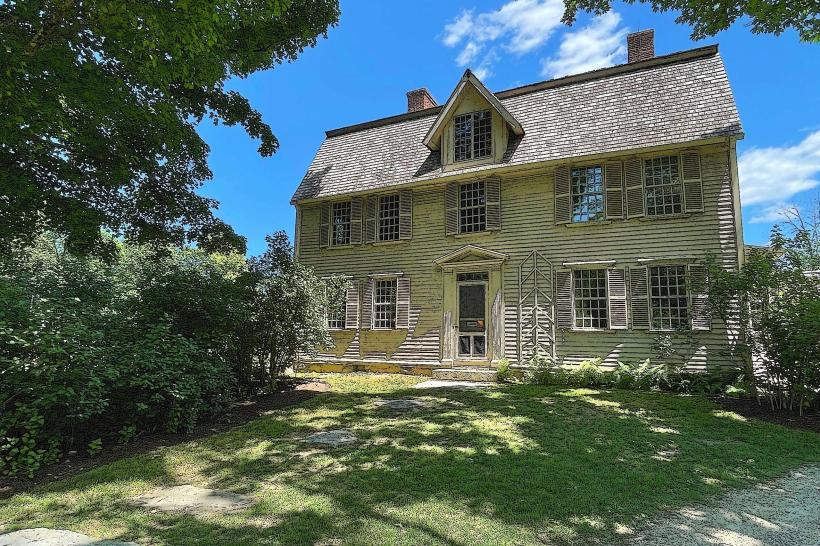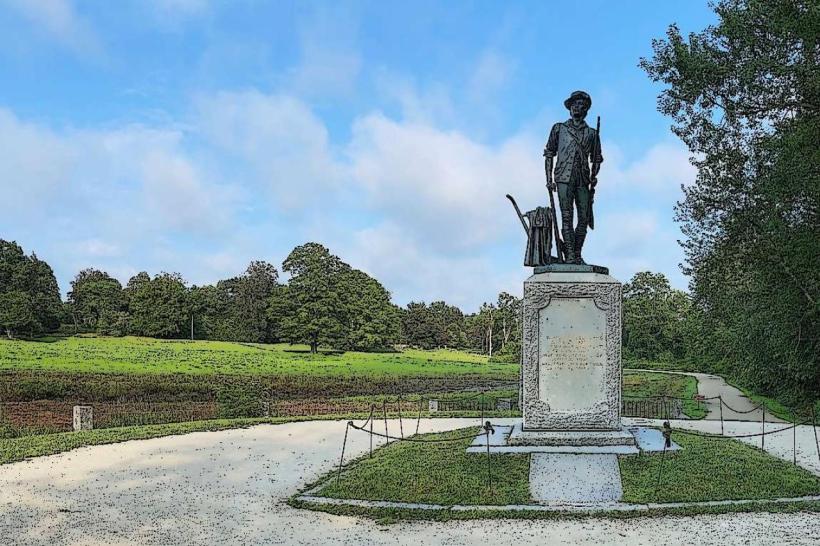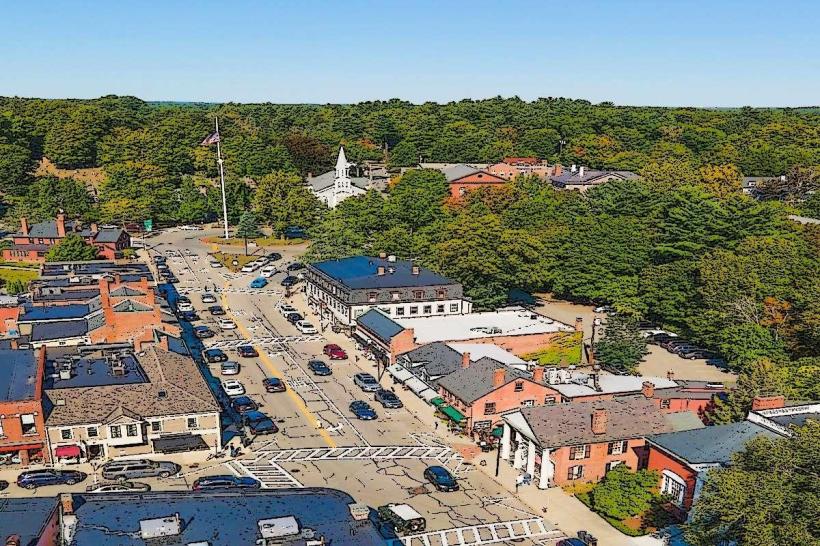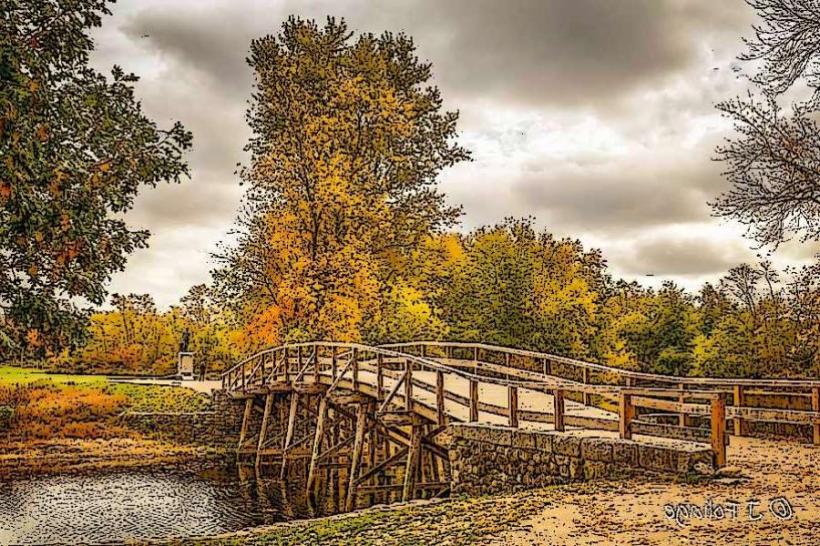Information
Landmark: Ralph Waldo Emerson HouseCity: Concord
Country: USA Massachusetts
Continent: North America
Ralph Waldo Emerson House, Concord, USA Massachusetts, North America
The Ralph Waldo Emerson House, located at 28 Cambridge Turnpike in Concord, Massachusetts, is a historic home and National Historic Landmark that was the primary residence of the eminent American philosopher, essayist, and poet Ralph Waldo Emerson from 1835 until his death in 1882. This house is a physical testament to Emerson’s life and work, and it served as a vibrant intellectual hub for the Transcendentalist movement, hosting figures such as Henry David Thoreau, Nathaniel Hawthorne, and the Alcott family.
Historical Context and Significance
Emerson purchased this modest yet stately Federal-style home in 1835, a year before publishing his groundbreaking essay Nature, which laid the foundation for Transcendentalism-an American philosophical and literary movement emphasizing individual intuition, the spiritual connection to nature, and self-reliance. He named the house “Bush,” reflecting its rural, wooded surroundings.
The Emerson House became more than just a family home; it was an epicenter for intellectual discourse and progressive thought during the 19th century. Emerson’s extensive writings, lectures, and ideas were profoundly shaped within its walls. His presence and influence helped establish Concord as a cultural and philosophical capital of the United States during that era.
Architecture and Interior Features
Built in 1828 by the Coolidge family, the house was relatively new when Emerson acquired it. Its architecture is characteristic of early 19th-century Federal style, featuring balanced proportions, simple lines, and a practical, functional design well-suited to rural Massachusetts.
Inside, the house preserves much of its original character and furnishings, allowing visitors to experience the environment in which Emerson lived and worked:
Emerson’s Study: The most important room in the house is Emerson’s study, where he composed many of his most influential essays and poems. The study retains the original desk, chairs, bookcases, and personal items that belonged to Emerson, offering a glimpse into his daily routine and creative process. The natural light from the windows overlooks the surrounding woods, underscoring Emerson’s deep connection with nature.
Family Living Spaces: The parlor, dining room, and bedrooms are preserved with period-appropriate furnishings, including original family pieces. These rooms showcase the lifestyle and domestic arrangements of a mid-19th-century intellectual household.
Gardens and Grounds: Surrounding the house are gardens and wooded areas that Emerson and his family maintained. Emerson’s respect for nature is reflected in the naturalistic landscape, which still contains native trees and plants typical of the time. Walking through the gardens, visitors can sense the influence of nature on Emerson’s philosophy.
Intellectual and Social Role
The house functioned as a meeting place for Emerson and his contemporaries in literature, philosophy, and social reform. Throughout his residency, Emerson hosted:
Henry David Thoreau, who lived nearby at Walden Pond and visited frequently.
Nathaniel Hawthorne, the renowned novelist and short story writer.
Members of the Alcott family, including Louisa May Alcott, who would become famous for Little Women.
Together, these figures contributed to the Transcendentalist movement, advocating for individual freedom, social justice, abolitionism, and environmental stewardship. Emerson’s home became a locus of vibrant dialogue, book readings, and planning for progressive causes.
Preservation and Museum Status
The Ralph Waldo Emerson House is maintained by the Ralph Waldo Emerson Memorial Association, which ensures its preservation and operation as a museum. It was declared a National Historic Landmark in 1962, recognizing its exceptional importance to American cultural heritage.
The house is open seasonally, generally from late April through October, offering:
Guided tours led by knowledgeable docents that last about 45 minutes. These tours explore Emerson’s life, writings, and the significance of the home.
Exhibits displaying Emerson family artifacts, manuscripts, and period furniture.
Opportunities to experience the intimate setting where ideas that shaped American identity and literature were formed.
Visiting Details
Location: 28 Cambridge Turnpike (Route 2A), Concord, MA 01742.
Hours: Open Thursdays through Saturdays from 10:00 a.m. to 4:00 p.m., and Sundays from 1:00 p.m. to 4:00 p.m., typically from late April to early October.
Admission Fees: Adult tickets cost around $15; discounted rates are available for seniors, youth, and children under 7 are free.
Accessibility: The historic structure has limited accessibility due to stairs and period construction.
Parking: On-street parking is available nearby.
Legacy
The Emerson House is more than a preserved residence; it embodies the spirit of American transcendentalism and intellectual freedom. Standing within its walls or walking through its gardens offers a unique connection to one of the most influential thinkers in American history. The home continues to inspire visitors to explore ideas of individuality, nature, and self-reliance that Emerson championed, making it an indispensable cultural landmark in the story of American literature and philosophy.

